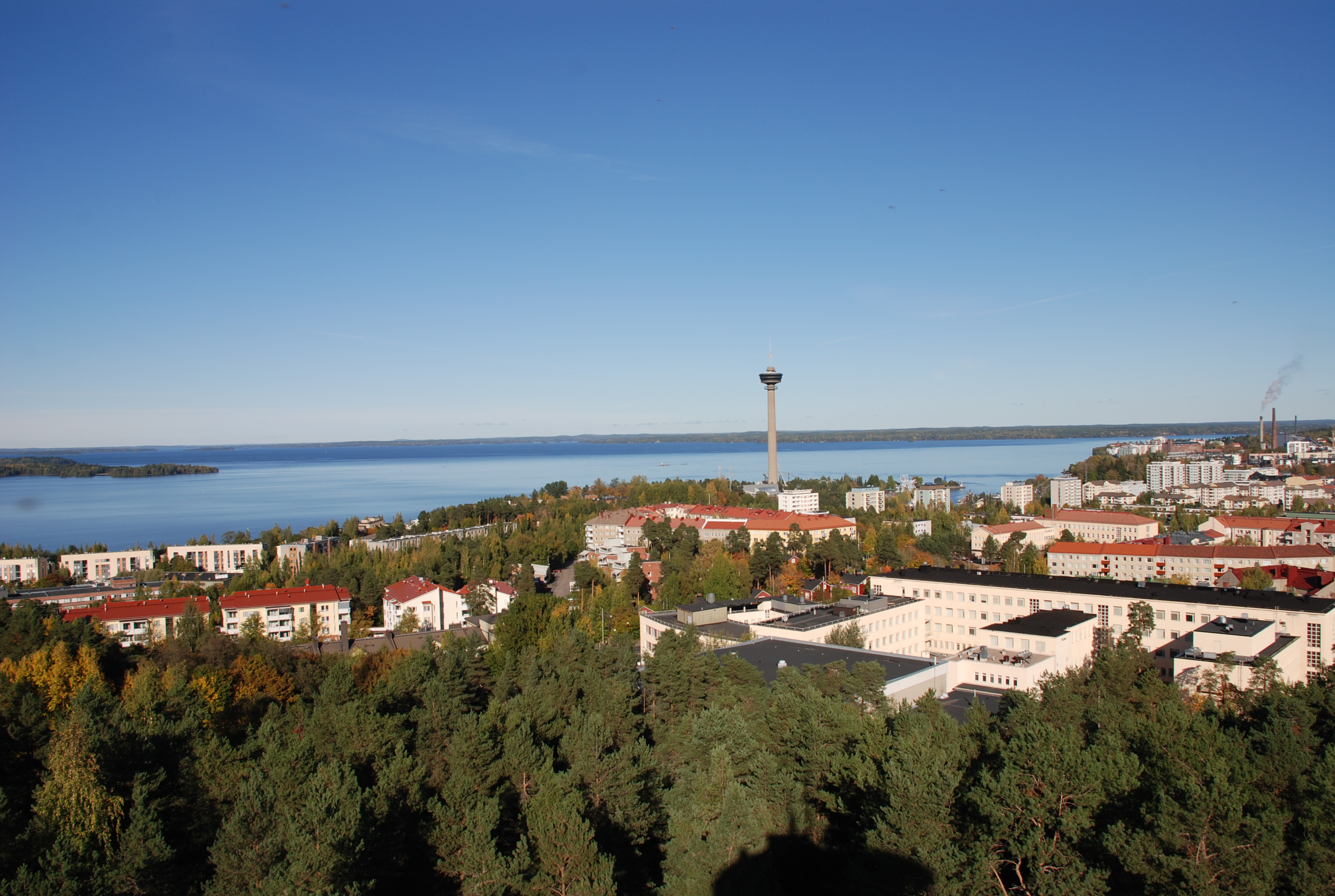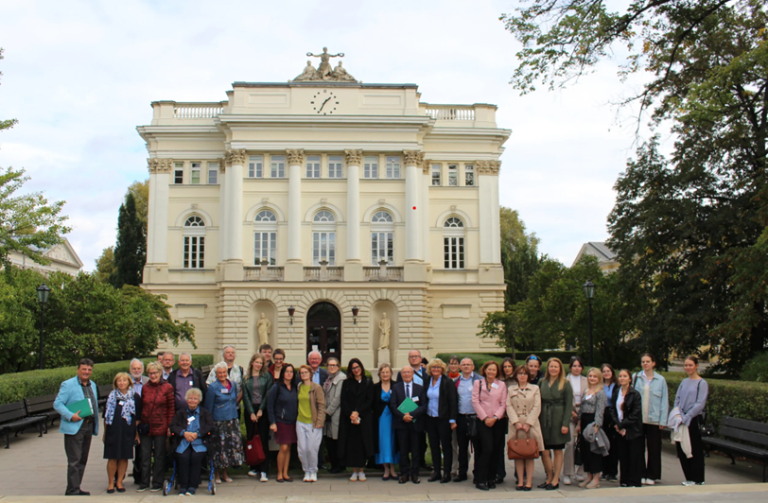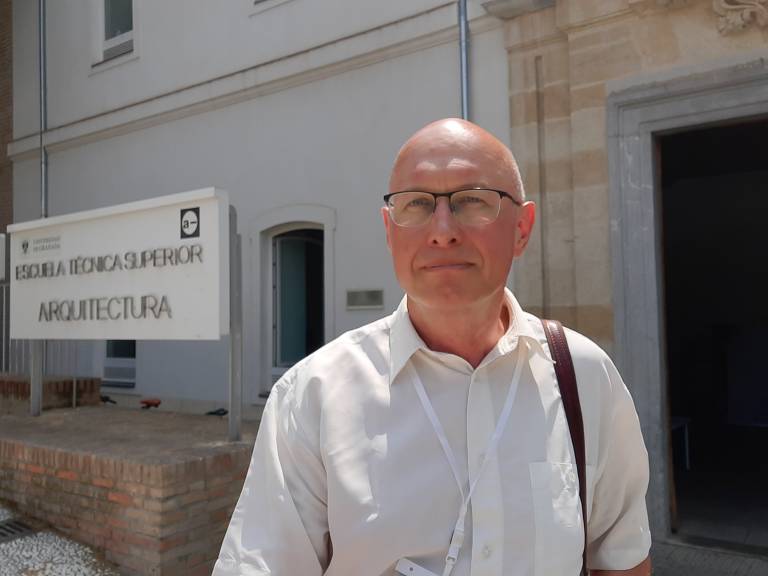The new year started with the XLV symposium of VAKKI Communication Research Association that took place in Vaasa on February 13–14, 2025. The theme of the symposium was “Communicational Relations”, which was approached from the perspectives of communication, discourse, and media studies. Moviko was represented in the symposium by Marja Kivilehto, Miia Santalahti, and Anu Viljanmaa.
The symposium included sections in several languages. In the German section, Anu Viljanmaa gave her presentation entitled “Kommunikative Beziehungen in dolmetschervermittelter Kundenarbeit: Erfahrungen und Erkenntnisse von Sozialarbeiter*innen in Finnland zu Rapportaufbau und – management”, which dealt with the formation of interaction in interpreter-mediated discussions. Marja Kivilehto discussed terminology related to easy language in her presentation “Selkokieli – kielimuoto, rekisteri vai yksinkertaisesti tarkoituksenmukainen viestintätapa?”, and the joint presentation by Marja Kivilehto and Miia Santalahti “Naapuruussuhteet valtiosopimusten valossa” addressed the language used in treaties between Finland and its western and eastern neighbour state.
The next important event in translation and interpreting studies in the spring term was the 2025 KäTu Symposium on Translation and Interpreting Studies that was held at the University of Helsinki’s City Centre Campus on April 11–12, 2025, under the theme “Certainty and Uncertainty.” The 22nd session of the KäTu Symposium brought together a large and diverse group of translation scholars, professional translators and interpreters, and representatives of related stakeholders to hear about and discuss the latest research and developments in the field in a warm and collegial atmosphere.
Tampere researchers had a very strong representation. Thus, Pluralist Sari Hokkanen acted as a reviewer of abstracts submitted to the symposium and as the chair of one of the sections. When asked about her experience, Sari highlighted the support of the Languages Unit: the unit covered travel and accommodation expenses, and also no participation fee was charged due to Sari’s participation in the symposium.
It is worth mentioning, that the previous KäTu Symposium was held in Tampere in 2024, and the joyful encounters and heartfelt atmosphere were still fresh in everyone’s memory. Expectations were high—and KäTu2025 did not disappoint. Once again, KäTu offered participants a broad and diverse selection of the latest research in translation studies, along with various workshops. The setting was ideal for refreshing encounters and engaging discussions. With so many parallel sessions, it was sometimes difficult to choose which one to attend!
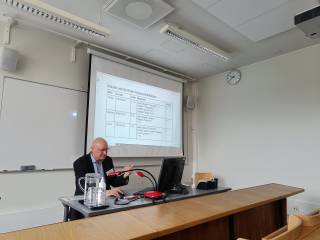
Researchers from Tampere made a significant contribution. On the first morning of KäTu, in Section 4 starting at 9 a.m., translation was examined from various perspectives. Marja Kivilehto gave a presentation on Language Ideologies? Conceptions of Language Underlying the Authorized Translator’s Examination. She explored the language ideologies behind the authorized translator’s examination and the role of language in the exam in general. The section, which featured several Tampere-based researchers, also included Julia Souma’s presentation on Publishing Finnish Translations of Vladimir Lenin: An Overview and a joint presentation by Mikhail Mikhailov, Satu Valkiainen, Julia Souma, and Albina Rolli on Lenin or Nixon? On a Certain Metaphor from the Year of the Bayonet and the Axe. According to Satu and Mikhail, the presentation went really well, despite the early hours.
In the section on community interpreting, one of the many interesting presentations was given by Anu Viljanmaa, on Uncertainty and Certainty in the Work of a Community Interpreter. Her talk examined, based on interpreters’ own experiences, the role that certainty and uncertainty can play in the interpreter’s work. In what situations do interpreters experience uncertainty or certainty, and how do they deal with it?
In addition to fascinating plenary and section presentations, KäTu also featured workshops. From the Languages Unit, Anu Viljanmaa helped organise Workshop 1, which focused on the theme “Providing Feedback in Interpreter Training.” The workshop was organised by Stuart von Wolff (University of Helsinki), Tutta Saalin (University of Eastern Finland), Anu Viljanmaa, and Erja Tenhonen-Lightfoot (University of Helsinki). The aim was to share best practices in assessment and feedback and to gain a broader understanding of the teaching and training community’s experiences and perspectives. The discussion was lively, and the workshop yielded rich insights!
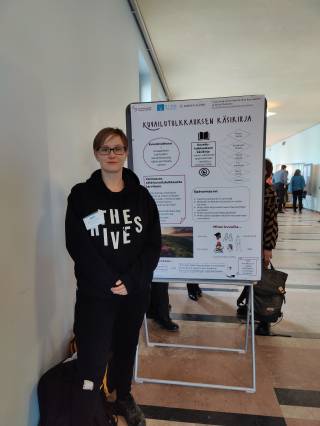
The symposium also served as a platform for showcasing research conducted by our younger colleagues. This is what doctoral student Mira Kainulainen said about her experience at the KäTu Symposium: “I had a poster presentation about the Kuvailutulkkauksen käsikirja (Audio Description Handbook) project. I had many interesting discussions about the current state and future of audio description in Finland. Many people said that the project is interesting and important and wished us luck!”
According to the unanimous opinion of Moviko researchers, looking ahead, the KäTu Symposium will continue its tradition of fostering scholarly and professional dialogue when it convenes again in 2026 at the University of Eastern Finland in Joensuu.
For Moviko Pluralists, the spring term ended with the European Masters of Translation Network Meeting that took place at the University of Warsaw, Poland, on 2–3 June 2025. The network is a cooperation forum between the EU Commission and European higher education institutions offering education in the field of translation and interpreting. The network meets once a year in person, in addition to which other meetings are organised remotely.
The Master’s Programme in Multilingual Communication and Translation Studies is participating from Tampere, and is represented by Mikhail Mikhailov and Sari Hokkanen. This time Sari went on site as a representative of Moviko. The Commission paid for flights and accommodation, while the Languages Unit contributed to the costs of domestic train travel.
The network meeting discussed the future of language service education and European cooperation, in particular how to spread awareness of the field in the age of artificial intelligence, when the public from time to time has quite flimsily justified views about the atrophy of the translation industry and the need for human translators and interpreters. At the same time, the development of more environmentally and security-sustainable European language models and the role of artificial intelligence in the future language services sector were also discussed.
We are very happy for our Moviko colleagues having had such a productive and successful academic term, and we wish them a very pleasant summer!
Blog post authors and contributors: Sari Hokkanen, Mira Kainulainen, Marja Kivilehto, Mikhail Mikhailov, Miia Santalahti, Satu Valkiainen, Anu Viljanmaa

